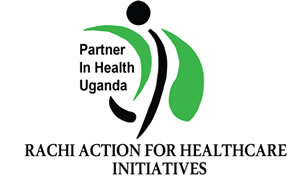In the rural community of Bussi, like many places in sub-Saharan Africa, menstruation is often considered a taboo subject—one that is rarely discussed openly, and yet, it significantly impacts the lives of women and girls. This silence around menstrual health perpetuates a cycle of poor health, missed opportunities, and limited access to education for young girls. In Bussi, where the majority of the population resides in wetland areas and subsists on agriculture, the challenges faced by women and girls are further compounded by limited resources and social stigmas.
The Menstrual Hygiene and Management (MHM) project launched by RACHI seeks to break this silence, creating a safe space for education, access to menstrual products, and healthcare, while also challenging the cultural norms that prevent open dialogue. The project is grounded in the understanding that menstruation is a natural process, and addressing it properly can dramatically improve the quality of life for women and girls, especially in rural communities like Bussi.
The Problem: A Hidden Struggle
For many girls in Bussi, menstruation is a difficult and often embarrassing experience. Without proper knowledge or resources, they resort to using unhygienic materials like old rags, leaves, or even dirt to manage their periods. This not only puts them at risk of infections and other health issues, but it also contributes to absenteeism from school. On average, a girl in Bussi may miss up to four days of school each month due to menstrual-related issues—whether it’s from fear of leakage, discomfort, or simply a lack of menstrual products. As a result, many girls fall behind in their education, affecting their long-term prospects for a better life.
In addition to these challenges, the stigma surrounding menstruation prevents open conversations about menstrual health. Girls and women often feel isolated and ashamed, while boys and men remain largely uninformed about the needs and struggles women face during menstruation.
RACHI’s Solution: Education, Empowerment, and Access
The Menstrual Hygiene and Management (MHM) initiative by RACHI is designed to tackle these challenges head-on. It’s not just about providing menstrual products; it’s about creating a comprehensive, community-wide approach that empowers women and girls with the knowledge and resources they need to manage their menstruation with dignity.
- Education and Awareness: Through workshops and community-based training, RACHI educates girls, boys, parents, teachers, and local leaders about menstrual hygiene and management. These sessions aim to break the stigma, normalize conversations around menstruation, and provide practical knowledge on how to manage periods safely and hygienically.
- Access to Menstrual Products: Many girls in Bussi cannot afford sanitary pads or tampons. RACHI’s initiative works to ensure that girls and women have access to affordable, high-quality menstrual hygiene products. These products are distributed through local health centers and schools, ensuring that no girl misses school due to lack of supplies.
- Supportive Sanitation Facilities: RACHI also works with schools and community centers to improve sanitation facilities. Many public toilets in Bussi are inadequate or lack privacy, which discourages girls from attending school during their menstruation. By improving these facilities and ensuring they are equipped with clean water, soap, and disposal bins, RACHI helps to create an environment where girls feel comfortable attending school during their period.
- Menstrual Health Advocacy: Beyond practical support, RACHI advocates for the inclusion of menstrual health education in school curriculums. By engaging local policymakers and leaders, the organization works to ensure that menstrual health becomes a priority at the community and national levels.
Real-Life Impact: Stories of Change
In one rural village in Bussi, 14-year-old Amina had always struggled with menstruation. She would often stay home from school during her period, too embarrassed to ask for help or leave the house because she didn’t have access to sanitary products. She used old cloths, which caused discomfort and led to infections. When Amina’s school became part of the MHM project, everything changed.
Through a community workshop, Amina learned about the importance of menstrual hygiene, and she was given a starter kit of sanitary pads. For the first time, she felt comfortable going to school during her period, and as a result, her attendance improved. Amina is now not only attending school regularly, but she is also a peer educator, helping other girls in her community understand menstrual health and the importance of self-care.
Looking Ahead: A Future of Empowerment
RACHI’s MHM project is creating ripples of change that will resonate for years to come. By educating girls and boys, improving access to menstrual products, and advocating for better sanitation facilities, the project is empowering women and girls to take control of their health and education. When girls are able to attend school every day without fear of missing out due to menstruation, their future becomes brighter. They are more likely to stay in school, graduate, and pursue careers that can lift them and their families out of poverty.
In the long term, the MHM initiative not only seeks to improve the lives of women and girls in Bussi but to change the broader narrative around menstruation in rural communities across Uganda. With the support of donors, community leaders, and volunteers, RACHI hopes to extend the reach of the project, ensuring that no girl ever has to choose between her education and her menstrual health.
Get Involved
The journey toward menstrual equity is far from over, and RACHI needs your support to continue this critical work. Whether through donations, volunteering, or spreading awareness, your involvement can help ensure that every girl in Bussi—and beyond—has the opportunity to manage her menstruation with dignity and confidence. Together, we can create a future where menstruation is no longer a barrier to education, health, or success.



